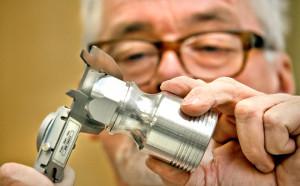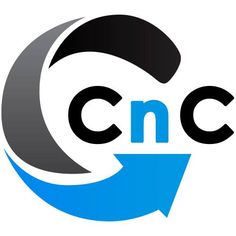Before working as a CNC Machinist, most companies require some previous experience or training. It could be getting certified at a Tech school, a certain number of years working with a number of machines and program controllers, or using specially tooling/machinery.
It really depends on the shop and what they’re looking for, but you should decide what kind of shop you’re wanting to work at in the first place so you know what to work towards.
Here’s some general requirements for each stage of a Machinist Career (Each level is a prerequisite for the next level)…
Basic Shop Helper/Student:
- High School Diploma/Currently enrolled
- Basic math knowledge
- Hard worker
- Punctual
- Can Pass drug/background check
- Ability to lift 30+ lbs.
- Listens to authority
- Quick learner and motivated
Entry Level Machinist/Operator:
- 1-2 years of Machine trade school or previous experience
- Ability to use basic inspection tools such as: caliper, micrometer, thread gauges
- Be able to set tool/work offsets if needed
- Can change out parts and properly deburr
- Operate a band-saw
- Occasional light assembly
- Able to interpret blueprints
Mid-level CNC Machinist:
- 3-5 years of previous machining experience and/or schooling in Machine Trades
- Ability to do to set-ups on CNC milling machine or CNC Lathe
- Ability to program and edit programs if needed
- Some experience with CAD/CAM software preferred (depends on the position)
- Ability to inspect own parts with proper tools
- Math/Basic trigonometry skills
- Basic knowledge of feeds and speeds for materials
Lead Machinist:
- Good communication/interaction skills
- Proficient in troubleshooting machine and program problems/alarms
- 5 or more years of previous experience
- Ability to teach and train new employees on machine operating, set-ups
- Certified and experience with fork-lift operation
- Report all maintenance and important issues to Manager
- Understand the capabilities and limitations of each machine
- Be a leader and organized
CNC Programmer/Engineer:
- 2-5+ years of previous programming experience with CAD/CAM software (Gibbs,Surf,Bob,Mastercam,Solidworks,etc.)
- Complete understanding of machine usage and programming G & M codes
- Awareness of cutting tool technology
- Complete understanding of work-holding strategies
- Ability to make/utilize work fixtures with simple and complex parts
- Strong tooling knowledge, as well as optimum feeds and speeds for each job
- Ability to program for different machines; mill/lathe/4th axis/live tooling (if required)
 Now not all of these are going to be the exact requirements for the job you’re applying for. However, it is important that you experience and can do all or most of the above in the given category for the job you want.
Now not all of these are going to be the exact requirements for the job you’re applying for. However, it is important that you experience and can do all or most of the above in the given category for the job you want.
The more you know, the more your future employer will consider you. Having a strong resume doesn’t always get you the job, but it can help you get the wage/salary that you deserve based on your skill level.
